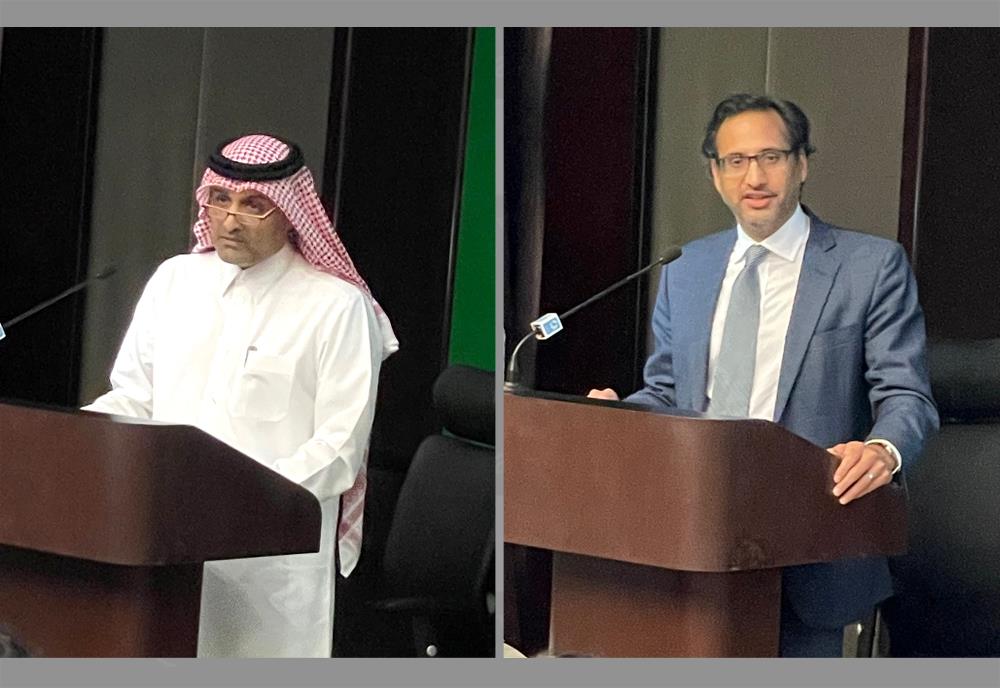
IHI hails quality of healthcare in Qatar
Doha: President and CEO of the Institute for Healthcare Improvement (IHI), Dr. Kedar Mate, visited the Hamad Medical Corporation (HMC) recently to meet with senior leaders and quality improvement advisors across the Corporation.
The visit, which marks the 10-year partnership between IHI and HMC's Hamad Healthcare Quality Institute (HHQI), helped reaffirm HMC's ongoing commitment to quality improvement and patient safety. During the two-day visit, Dr. Kedar was received by H E Dr. Hanan Mohamed Al Kuwari, Minister of Public Health, who is a staunch advocate for effective and efficient initiatives to improve the quality, safety, and effectiveness of care services for patients in Qatar.
Dr. Kedar expressed that he was honoured to meet with H E Dr. Al Kuwari and reiterated his recognition of the great capacity and capability for quality improvement within the public healthcare system in Qatar. He commended the value of having such a committed leadership, especially within HMC, who are so engaged in all aspects of quality and patient safety.
He also stated the benefit of having expertise provided by HHQI experts across the corporation, which has led to a high percentage of interdisciplinary teams work on improvement programs to bring about real system changes.
Dr. Kedar also met with several strategic leaders at HMC and held discussions on the future of quality, patient safety, value improvement, system-wide flow and patient experience and staff engagement with Dr. Abdulla Al Ansari, Nasser Al Naimi, Ali A. Janahi, Prof. Abdul Badi Abou Samra, Mariam Al Mutawa, Dr. Muna Al Maslamani and Dr. Hanadi Alhamad.
Dr. Kedar was able to meet with several HMC chiefs, hospital facility CEOs, medical directors and the heads of departments across the organization in a“meet the expert” session. He shared his knowledge and experience of change ideas that can help healthcare systems, such as Qatar's healthcare system, to fill what he referred to as“the know - do gap”.
Dr. Kedar first proposed to the value of focusing on the whole system quality approach, which is part of a unified approach to building responsive and resilient healthcare systems. This offers a more holistic approach to quality management where front-liners are guided by focused leadership vision that is in strategic alignment with all business processes and services to meet customer needs.
Dr. Kedar proposed another improvement area around eliminating wasteful variation in clinical care by understanding the performance across the system and learning from the best practices that exist within the system. He gave examples of how every single minute of resource time saved (including professional manpower, facility and other resources) and every single riyal of cost saving, all add up to value days of care and increase in revenues. He underlined the importance of having strong data and the ability to analyze this data to make better informed decisions about systems improvements.
His final advice was to change the mental models when it comes to practicing quality improvement and always review the availability and relevance of a clear vision, deployed resources and criteria for sustainability in order to reach the desired outcomes.
Dr. Kedar attended several value improvements huddles in Hamad General Hospital, Qatar Rehabilitation Institute and Communicable Disease Center and met with medical directors, CEOs, leads and frontline teams within these facilities. He expressed his admiration for the staff engagement on different improvement efforts and the great ownership and deep understating of QI methods and tools evident across the organization.

Legal Disclaimer:
MENAFN provides the
information “as is” without warranty of any kind. We do not accept
any responsibility or liability for the accuracy, content, images,
videos, licenses, completeness, legality, or reliability of the information
contained in this article. If you have any complaints or copyright
issues related to this article, kindly contact the provider above.


















Comments
No comment